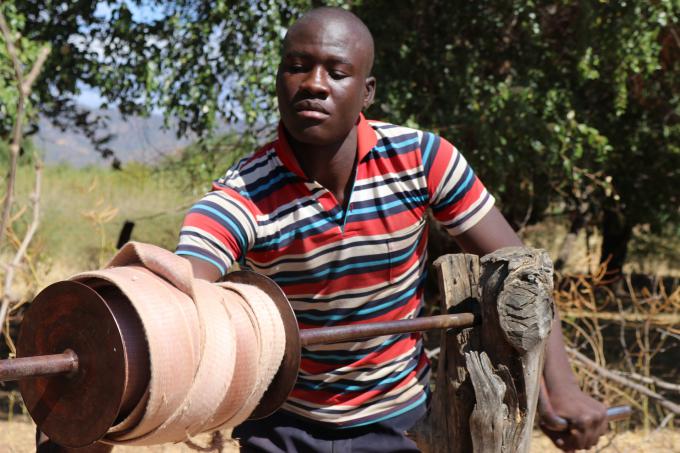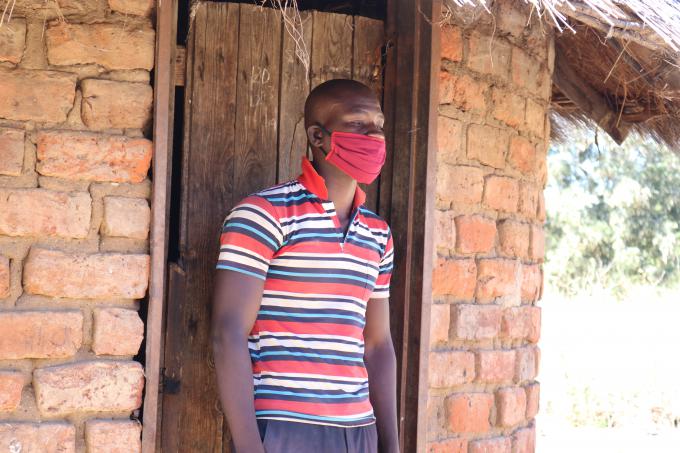Food Aid for Child-headed Households in Zimbabwe
Muchengeti (18) lives with his younger three siblings in Mbire district, a remote village in northern Zimbabwe. Following the death of their parents, Muchengeti was forced to drop out of school due to financial constraints and he immediately assumed the breadwinner role. Providing for his siblings has for long been a huge struggle for Muchengeti, as he has no source of income.
"We are a family of for, three boys and one girl. I am the oldest. Our parents passed away."
"My father was the first to die, it's been a hile now. Mom died in 2017 when I was 15 years old. At the time of my mother's passing, I was in form 2 and I had a drop out of school because there was no money, and I had to take care of my siblings."
Muchengeti’s siblings have never enrolled in school all their life and they have no one to pay their school fees. Muchengeti has no money and cannot afford to send his siblings to school. The only relative they are left with is a paternal aunt, but Muchengeti says she cannot do much for them because she is equally struggling.
The family struggles to get food to survive Muchengeti and his siblings did not manage to grow enough crops in the 2019 agricultural season. They did not harvest anything from the little they had ploughed, as no rains fell and crops wilted. Occasionally, Muchengeti does menial jobs for fellow villagers in exchange for food. That is how he has managed to provide food for his siblings.
“We really struggle to get food. Sometimes we go to bed without eating. Our councillor sometimes brings us food.”
Muchengeti says the community identified him and his siblings as ideal targets meant to receive food aid under the ECHO-funded REACH project, as they are orphans and they do not have enough food to eat and no source of income. Their family started receiving monthly food vouchers in October 2019.
“Every month, we received mealie meal, cooking oil, beans, and dried fish for the four of us.”
The economic crisis in Zimbabwe, has resulted in prices of basic commodities in shops going up on a regular basis. This had taken a toll on the family. Muchengeti says the food they received assisted him and his siblings because they had nothing and no one to turn to. Sometimes they had to endure a day without food. From the time they started receiving food assistance, Muchengeti says that there was enough food to last a month and they didn’t go to bed hungry.
“The food was enough for us and we had three meals every day. I would like to thank ECHO. If it wasn’t for the ECHO programme, we would have died of hunger.”
Through financial support from European Union/ ECHO, Save the Children and its implementing partners World Vision and Care have been supporting the most vulnerable and food insecure families through the food and cash transfer project. The project has assisted 80 000 food insecure households with children under 5, child-headed households, pregnant and nursing mothers, and people living with disabilities and chronic illnesses in Mbire, Matobo, Mwenezi and Beitbridge districts from October 2019 to April 2020. Muchengeti has also received information about COVID-19 awareness and prevention, as well as a face mask from Save the Children.
The food shortages in Zimbabwe amid a failing economy have now been worsened by the coming of the COVID-19 pandemic. COVID-19 cases have been increasing in Zimbabwe. Efforts by government to respond to the COVID-19 pandemic in Zimbabwe are affected by ongoing demontrations by frontline health workers over salaries amont other conditions of service.
 Zimbabwe
Zimbabwe 
